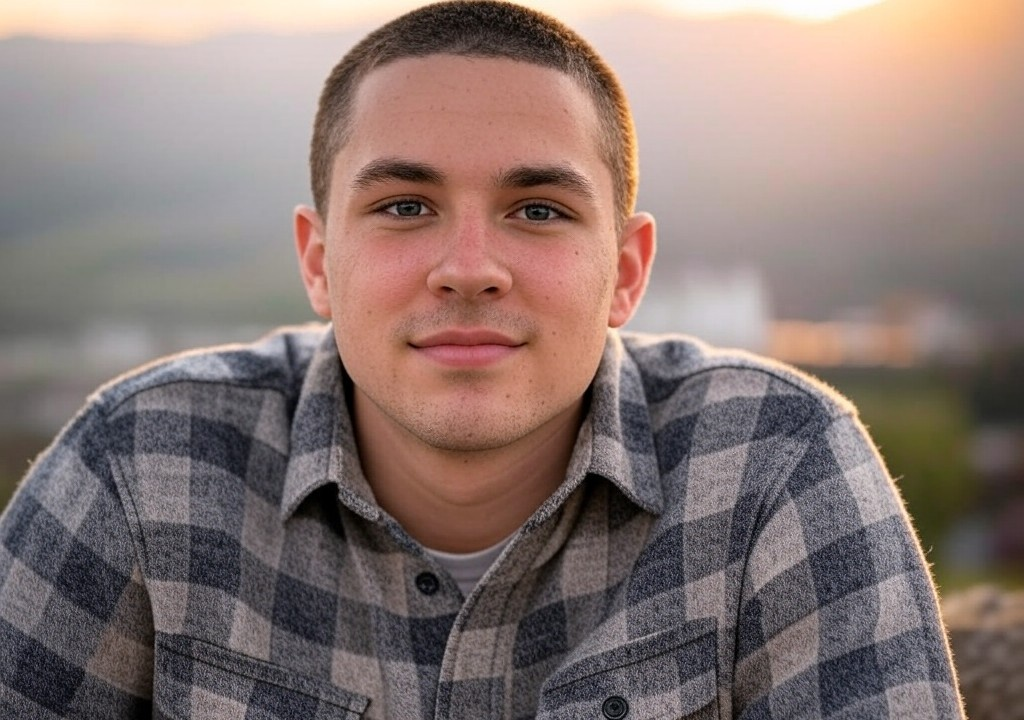The Call I’ll Never Forget
I was mid-sentence discussing the merits of store-brand peanut butter with my brother when my phone buzzed. Normally, I’d let it ride—our grocery debates are legendary—but something made me glance at the caller ID. It was a 435 number, familiar and official in its Utah-ness. I didn’t recognize it, but something inside me whispered, Answer it, Caleb.
And so, I did what any responsible (?) older brother in the middle of a spontaneous tangent does: I waved my hand at him, mouthed an apologetic "Hold on," and answered.
“Hello?”
A pause. Then a voice. Tentative. Warm. Direct.
“Hi, Caleb. This is Laney Evans with—”
And that’s where my life pivoted.
Chapter 1: A Life on Hold
Let me back up. At this point in my career, I was stuck. I’d been teaching creative writing—mostly intro-level workshops at the local community center—for a few years. Don’t get me wrong, I loved it. I’m still a sucker for hearing someone’s first shaky metaphor land like a cartwheel. But I wanted to evolve. I’d written a string of introspective essays on faith and identity, but aside from a few modest bylines and one semi-viral Medium post, things were... plateauing.
Now, in theory, I’m a big fan of patience. I grew up in a small LDS community, where if you prayed hard enough and waited long enough, good things (and casserole) would inevitably land on your doorstep. But in practice? Patience feels a lot like anxiety wearing a motivational T-shirt.
Anyway. There I was, convinced I’d written myself into a creative purgatory, when Laney made that call.
Chapter 2: The Big Ask
Turns out Laney was an editor for a magazine I admired—that perfect blend of thoughtful insight and playful storytelling about relationships and self-discovery. Think The Atlantic meets your charming, overly curious best friend. She’d read one of my essays—an uncomfortably personal piece about faith, dating, and trying to impress someone you’re not entirely sure you like—and wanted me to pitch her some ideas.
For a moment, I forgot how to use words. And that’s not great when you’ve been publicly introduced as a “gifted wordsmith.” My mouth felt full of Wasatch dust as I muttered, “I’d love to.”
Laney, to her credit, didn’t seem to notice—or at least pretended not to. She kept talking, explaining how they were looking for fresh voices, people who could combine depth with accessibility, someone who could be smart without being dry.
By now, I was gripping a wooden spoon like my life depended on it. What I remember most was her saying, “I think you’d be great at pulling readers into a story—not just as a writer but as someone who’s lived it.”
Then it hit me: This wasn’t just an ask. This was an opportunity.
Chapter 3: Saying Yes to… What, Exactly?
After we hung up, I stared at my phone like it might offer me more direction. This was it, right? The big moment where you rise to the occasion? Except all I felt was panic.
What would I talk about? I’d written plenty about growing up LDS, about navigating an identity shaped by faith and doubt, but those stories had been for me. They were personal, safely sealed in my little bubble of Utah readership. This invite required something broader, something bolder.
(Side note: If you’ve ever wanted to question your entire existence, take a request like, “Pitch us stories that capture what makes you… you.” No biggie.)
For the next 48 hours, I feverishly revisited old journals. I made lists—horrendous, sprawling ones with bullet points like “embarrassing mission trip memories” and “bad karaoke as metaphor for intimacy.” Eventually, I landed on an idea: I’d write about fear. Specifically, the fear of being known—of pulling back the layers we so carefully construct in early relationships.
It felt personal. Raw. Like something 15-year-old Caleb, awkward and earnest, would’ve appreciated.
Chapter 4: The First “Yes”
I emailed my pitch nervously. And I waited. You’d think I’d have been patient by now, but nope. Every phone buzz made my heart do jump squats. Every email notification had me clenching.
Finally, Laney responded.
“I love this angle. Let’s go for it.”
Six words. That’s all it took for my world to shift.
Chapter 5: The Ripple Effect
That first article—I titled it Why Vulnerability Feels Like Taking Off a Favorite Sweater—went live two months later. I braced myself for trolls, for indifference, for the internet to collectively say, “Cool story, bro,” and move on.
Instead, readers poured in with comments like, “Wow, I feel this so deeply. How did you get in my head?” and “This made me rethink how I show up in my relationships.”
It wasn’t about going viral or snagging the most likes. It was about resonance. Suddenly, the stories I told—the ones I often thought were too niche or too Utah or too me—found a home. And not just a home but a community.
Chapter 6: What That Call Taught Me
Looking back, the most life-changing calls aren’t the ones where loud fireworks go off in the background. They’re quieter than you think—more intentional.
That call didn’t just hand me a career boost. It reminded me of the power of stories. Not polished, filtered ones but messy, real ones. And it made me rethink how I approach connection, both in writing and in life.
Here’s the thing: Whether it’s putting pen to paper or leaning into a new relationship, the scariest step is showing up as you. Not who you think they want. Not who you hope you appear to be. Just... authentically, overwhelmingly, you.
Chapter 7: Your Turn
So, here’s my challenge: What’s the call you’re avoiding? Maybe it’s a literal one, like calling back an old friend you’ve drifted from. Or maybe it’s metaphorical—a call to take a risk, chase a dream, or finally admit what you’ve been feeling.
Answer it. Even if your hand shakes when you reach for the phone. Even if you’re holding a spoon mid-grocery-debate and sound like an idiot.
Because sometimes, that’s all it takes for everything to change.
From Flirt to Familiar – Learn More, Get Real Advice.




















